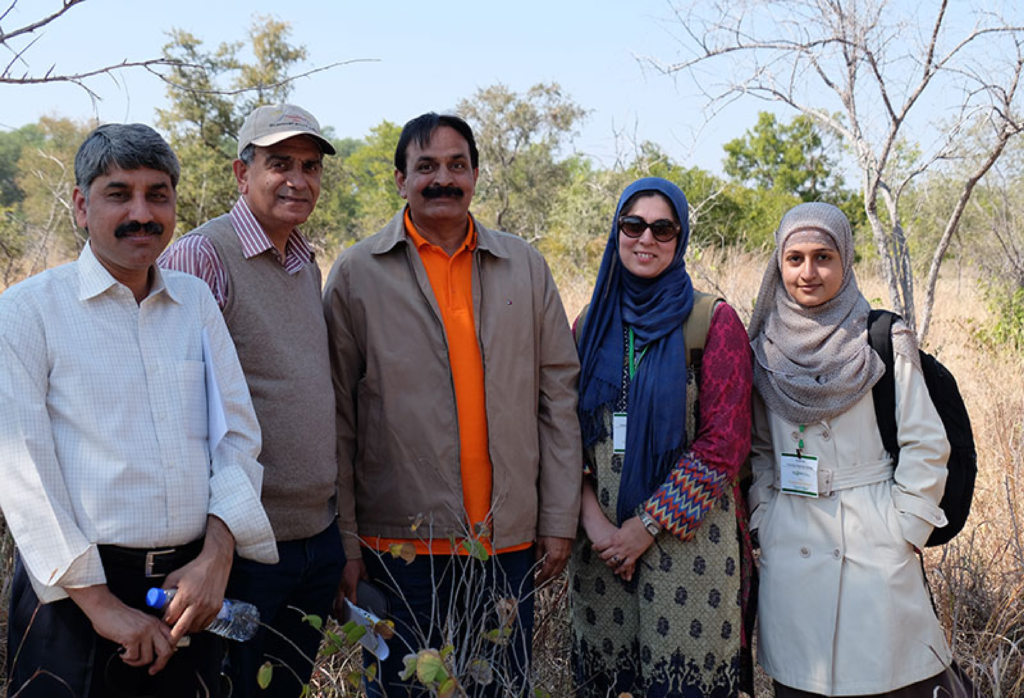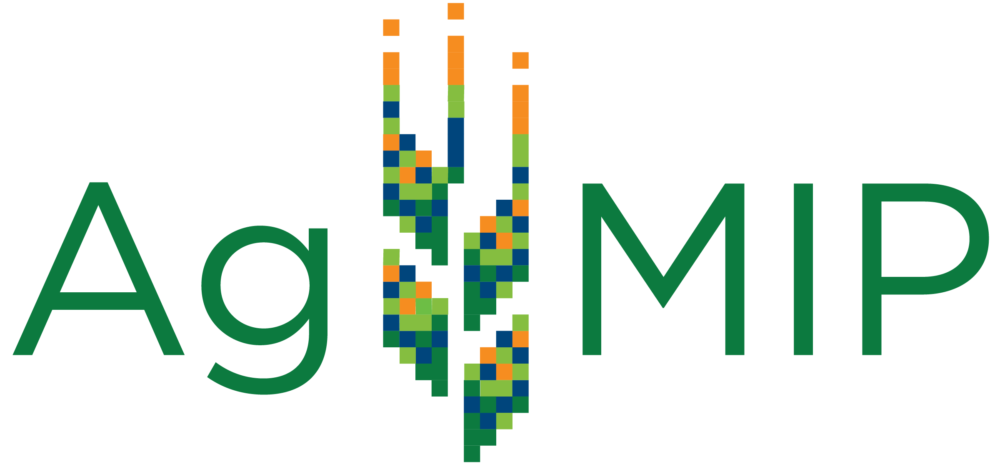Pakistan

The province of Punjab, Pakistan, is consistently met with challenges for agricultural productivity. A harsh climate with warm temperatures and dry conditions will only be worsened in the coming future. Climate change impacts could exacerbate conditions by making the seasonal monsoon and the timing of crop planting more difficult to discern – increasing seasonal inconsistency and poverty. Assessing adaptation policies and practices that will lead to a better understanding of the best future practices for agriculture in Punjab, Pakistan is essential.
During Phase 2 (2015-2017), the Pakistan team applied significant focus and emphasis on model calibration and analysis. The team utilized crop models DSSAT and APSI, and calibrated and validated these models for rice, wheat, and cotton. Through this process, scientists were able to inter-compare the results for model improvement. These updated crop models allowed site-specific production technologies and adaptation packages for climate change to be developed.
The team, including their stakeholder liaison, directed considerable attention to their engagement and outreach activities. Outreach included speaking about climate change awareness and results dissemination to stakeholders. Engagement incorporated a much larger assortment of methods such as workshops, webinars, seminars, use of Information Technology tools, symposiums, consultative sessions, field days, field visits, hands-on training, and demonstration plots.
Through these interactions, the research team developed regional level Representative Agricultural Pathways (RAPs) to help plan adaptation interventions. Policy makers can use RAPs and adaptation package information to understand how certain decisions may impact agricultural productivity in the future. This information was especially valuable to stakeholders, as the Pakistan team continued to revise their research approach and outputs to ensure the needs of their stakeholders were met.
Click here to learn more about AgMIP Pakistan.
Pakistan Team Members:
| Ashfaq Ahmad | PI |
| Muhammad Ashfaq | Socio-economics |
| Ghulam Rasul | Crop modeling |
| Syed Aftab Wajid | Crop modeling |
| Tasneem Khaliq | Crop modeling |
| Shakeel Ahmad | Crop modeling |
| Ahsan Raza Sattar | Information Technology |
| Farah Riaz | Stakeholder liaison |
| Fahd Rasul | Remote Sensing |
| Ahsan Bukhari | Climate Change |
| Syed Asif Ali Naqvi | Economics |
| Jamshad Hussain | Crop Modelling |
| Sohail Akhtar | Sociologist |
| Sajjad Ahmad Baig | Economics |
| Ishfaq Ahmad | Crop Modelling |
| Sadia Akhtar Awan | Economics |
| Shumaila Tufail | Crop Modeling |
| Asad Ullah | Agri. Engineering |
| Sana Rasul | Climate Change |
| Gerrit Hoogenboom | ARP |
